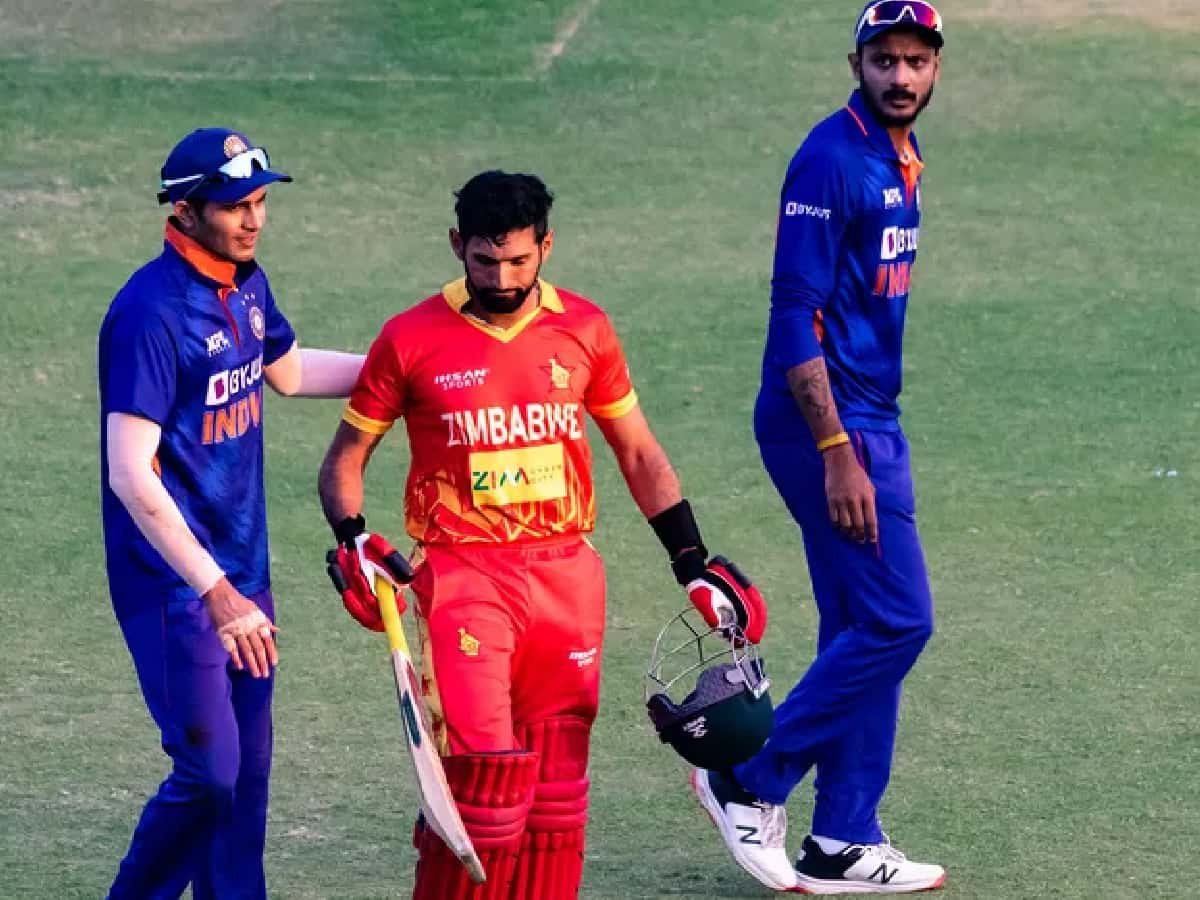One of the unique aspects of any sports competition is that rivals who are engaged in cutthroat competition, sometimes end up appreciating each other’s efforts. Whenever this happens our hearts are warmed by this genuine display of positive human emotions. The most recent example occurred in the third ODI match between India and Zimbabwe. Although India won the contest, the Zimbabwe batter Sikandar Raza scored a fighting century which was highly appreciated by all.
In fact there were two outstanding batting performances. The first was Shubman Gill’s blazing knock of 130. The second was Sikandar Raza’s 115 under pressure. When Raza was finally caught brilliantly by Gill off the bowling of Thakur, the Indian players too applauded the fighting spirit shown by Raza. It was one of the best innings by a Zimbabwe batter in recent times.
The pat on the back by his Indian rivals accompanied by the words “well played” indicated that appreciation knows no boundaries. Raza was born in Pakistan and now represents Zimbabwe. His century was scored against India. Yet Indian players showed their sporting spirit by applauding his effort.
A few days ago Pakistan’s ace javelin thrower Arshad Nadeem won the gold medal in the Commonwealth Games in Birmingham with an outstanding throw of 90.18 meters. The first to congratulate him was India’s top javelin thrower Neeraj Chopra. Here again was an example of friendship and appreciation cutting across borders. Chopra tweeted: “Congratulations Arshad bhai for the gold medal and crossing 90m with a new games record. Aage ke Competitions ke liye all the best.”
Interestingly, Neeraj Chopra and Arshad Nadeem have shared a friendship since 2016. That was when Nadeem traveled from Lahore to Amritsar. The two met and hit it off instantly. The common thread was that they both hailed from the Punjab region and so had many things such as language and culture in common.
From this friendship, there grew a friendly rivalry with each trying to get the better of one another in every competition. But the friendship remains steady. If one wins, the other is the first to say: Mubarak Bhai. Neeraj won the Olympic Gold medal while Arshad became the first to cross the 90 meter barrier and win the Commonwealth Games gold. Both are excellent javelin throwers.
Sourav Ganguly in his book “A Century Is Not Enough” has written about the help and guidance he received from Imran Khan and Wasim Akram. The friendship between Virat Kohli and Babar Azam is well known to all cricket followers.
Sometimes it goes beyond friendship. There have been examples of athletes from enemy countries getting married to each other against the wishes of their respective governments. One such case was that of American hammer thrower Hal Connolly. He won a gold medal in the hammer throw at the Melbourne Olympic Games in 1956.
When he was competing at the Olympics, Connolly met and fell in love with Czech discus thrower Olga Fikotova who herself had won a gold medal in her event. Despite the best efforts of their respective governments and diplomats to prevent them from marrying, they got married and became famous as the gold medal winning couple from two hostile countries.
“Fate brought us together, and we found that although we were from different political systems, when it came to basic human values and observations, we were extremely similar,” explained Olga.
Another tale of sporting spirit came from the Berlin Olympic Games in 1936. German long jump champion Luz Long saw that the American champion Jesse Owens was nervous. The German had set an Olympic record in the qualifying round itself so he was in no trouble. But Owens fouled his first two jumps. Knowing that he needed to reach at least 7.15 meters on his last jump in order to advance to the finals, Owens sat on the ground dejected.
It was then that Long approached him and guided him. He advised Owens to jump from a few inches behind the mark. “Such is your ability that you will reach the target even if you jump from a few inches behind the mark,” Long told Owens and thereby boosted his morale. Owens took his advice and did what the German had suggested. It worked perfectly. Owens qualified and then went on to win the Gold medal while Long came second. It was a great sacrifice made by Long and the fact that he did so under the glaring eyes of his country’s leader Adolf Hitler, made his act even more courageous.
These are the incidents that make sports attractive to human nature. Such acts are worth remembering with pride. They provide proof that friendship can overcome hatred and political divisions. So when Indian players applauded the century by Sikandar Raza, it was yet another example of the spirit of sports and its ability to conquer divisions and borders.

